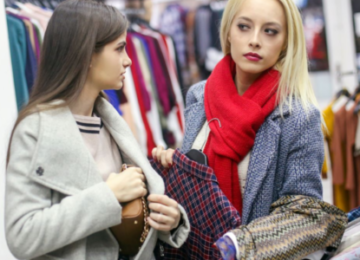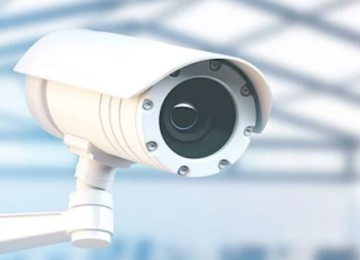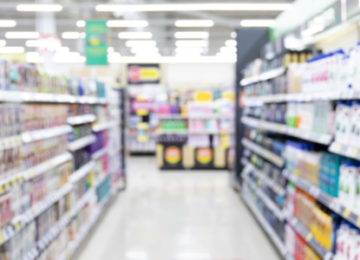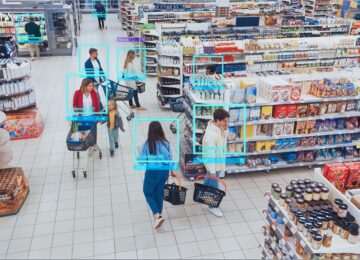Shoplifting consequences for retailers, staff, and thieves
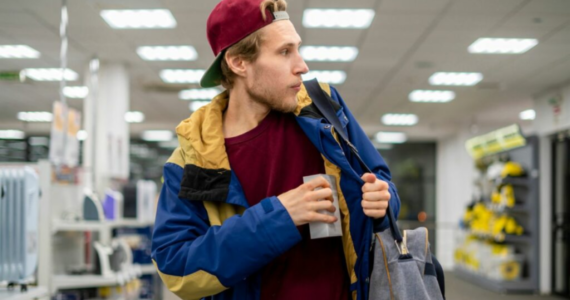
Every day retailers have to deal with the scourge of shoplifting. It can occur in any type of store, whether it’s a large supermarket, DIY or cosmetics store, or even a small local shop (e.g. pharmacy or greengrocers). According to figures from the French Ministry of the Interior, there was a significant rise in this type of crime in 2022. What are the consequences of shoplifting? How can retailers fight the scourge?
What are the legal risks of shoplifting?
Shoplifting is a punishable offence. Shoplifting damages retailers’ profits and leads to several consequences of shoplifting, including the stress and additional costs associated with preventive measures. Any person caught in the act of shoplifting is liable to a prison sentence and a heavy fine. Depending on the amount of damages incurred, there are two courses of action available to the retailer: the retailer can either choose to file a complaint before the law, or seek an amicable settlement.
Filing a complaint
The retailer can notify the police and file a complaint. According to French law (Articles 311-1 to 311-11 of the Penal Code), shoplifting is considered simple theft when it’s committed without any aggravating circumstances. In such cases, the offence is punishable by 3 years in prison and a fine of €45,000. According to the French Penal Code, this penalty remains applicable even if:
- the shoplifter returns the stolen good(s);
- it’s the shoplifter’s first recorded attempt.
Shoplifting can be classified as aggravated theft when:
- there are several perpetrators;
- it’s associated with violence;
- it’s committed by an adult assisted by a minor.
In the case of aggravated theft, the penalty can range from 5 years to life imprisonment. Fines can be as high as €150,000.
Coming to an amicable agreement
An amicable agreement is often appropriate in cases where the goods stolen are considered by the retailer to be of a low value, and where it’s the perpetrator’s first attempt. In this case, the perpetrator stopped by the retailer or by the security guard must pay for the goods. The perpetrator may also be banned from entering the store in future. To that end, they will be registered in the store’s database as a persona non grata. If it’s a repeat offender, the retailer should not hesitate to file a complaint.
Shoplifting’s impact on retailers and staff
Shoplifting damages retailers’ profits. Shoplifting can occur on a repetitive basis, and concerns all types of goods, i.e. food, make-up or HI-FI equipment. Shoplifters may also cause physical damage to the store itself. It’s therefore a source of stress to retailers, both in terms of the preventive measures that need to be taken, and the administrative formalities that need to be completed.
What can a retailer do about a shoplifting incident?
Following a shoplifting incident, the retailer concerned can call the police with a view to filing a complaint; the retailer can also go to a police station or ‘gendarmerie’. A complaint can still be filed even if the retailer does not know the identity of the shoplifter. The complaint will be recorded and forwarded to the public prosecutor. A complaint may also be filed directly with the public prosecutor by post.
It’s advisable to ask for a copy of the filed complaint for insurance purposes.
It should be noted that by virtue of Law No. 2022-52 of 24 January 2022 (Article 311-3-1 of the Criminal Code), legal proceedings may be terminated subject to the payment of a fixed fine of €300, if:
- the value of the stolen goods is less than or equal to €300;
- the stolen goods were returned by the shoplifter, or the retailer compensated.
Other damages
In addition to filing a complaint, the retailer may claim damages by instituting a civil action. Moreover, if the stolen goods are recovered during the investigation, the retailer may also request their return.
How to protect a business from shoplifting
Businesses suffering from shoplifting know that there is no profile of the typical shoplifter. Shoplifters can be from any social background or age group. Businesses also report that it is mainly acts of occasional or ‘casual’ theft. In other words, shoplifting may potentially be committed by anyone at any time. Constant vigilance is therefore required.
Security cameras and staff
To protect themselves from shoplifting, businesses routinely use video surveillance. This generally includes a conventional security camera surveillance system which relies on the vigilance of one or more security guards. This system is often supplemented by a theft detection gate, which may also be monitored by a guard.
Of course, the larger the store, the more cameras that will be needed. Additional security staff is also required to monitor the different security screens. These all represent additional costs for the store. Furthermore, the increased number of surveillance monitors does not facilitate the work of security guards, who consequently have to be twice as vigilant, including sometimes over long periods of time.
Investing in new technologies
Artificial Intelligence (AI) is one of the new technologies that can help a store’s security team to combat shoplifting. It provides for a new security system based on an algorithm that specifically detects suspicious behaviour. Security guards are then automatically alerted, and can thus intervene quickly. Please note that AI technology is not the same as facial recognition technology; AI technology works to protect the identity of shoppers.
Smart video surveillance
How does smart video surveillance work? Veesion software is based on an algorithm that actually detects a shoplifter’s gestures and movements in real time, and what’s more, it works with the surveillance cameras already installed in store. This means there is no need to invest in new equipment. The software connects to the store’s video recorder. It operates autonomously, 24/7. The system can send alerts to a range of different terminals, including tablets, smartphones and computers. Please note that to be authorised to receive and consult video footage from surveillance cameras, store employees must first be registered with the prefecture.
Shoplifting is an offence that can have serious consequences for the perpetrator, especially in the case of aggravated theft. But there are also consequences for the retailer. Besides the financial losses, there are also the psychological impacts to consider: the recurring anxiety associated with shoplifting can have serious consequences on the health of storeowners and staff. AI can become a real ally in the fight against the scourge of shoplifting. By optimising a store’s surveillance system, AI provides the security team with effective support and the necessary evidence, enabling it to intervene quickly and catch the shoplifter in the act. The efficiency it provides also serves as a deterrent for thieves. Understanding the consequences of shoplifting is crucial for retailers as they develop strategies to mitigate these risks.
The most popular
Related news
Discover what Veesion can do for you. Do you have one or more stores?
Our team will contact you within 48 hours

